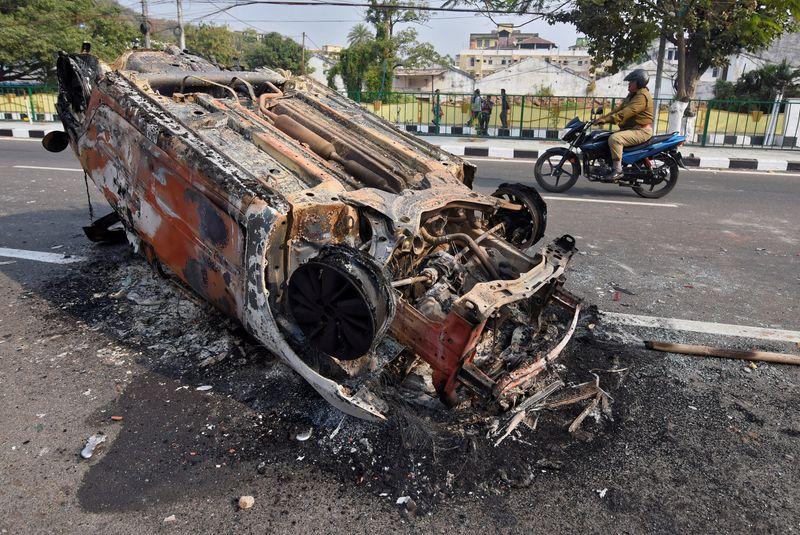Two Dead, Several Wounded In Assam As Protests Escalate Over Citizenship Law
Dec 13, 2019 | Pratirodh Bureau
A policeman rides a motorcycle past a damaged vehicle that was set on fire by demonstrators during a protest after India's Parliament passed the Citizenship Amendment Bill, in Guwahati on December 12, 2019
Violent mobs in Assam torched buildings and clashed with police on Thursday, leaving two dead and 11 with bullet wounds, as protests grew over a new citizenship law for non-Muslim minorities from some neighbouring countries.
Prime Minister Narendra Modi’s Hindu nationalist government has said the Citizenship Amendment Bill, approved by parliament on Wednesday, was meant to protect minorities from Bangladesh, Pakistan and Afghanistan.
The law seeks to grant Indian nationality to Buddhists, Christians, Hindus, Jains, Parsis and Sikhs who fled the three countries before 2015.
But thousands of protesters in the state of Assam, which shares a border with Bangladesh, say the measure would open the region to a flood of foreign migrants.
